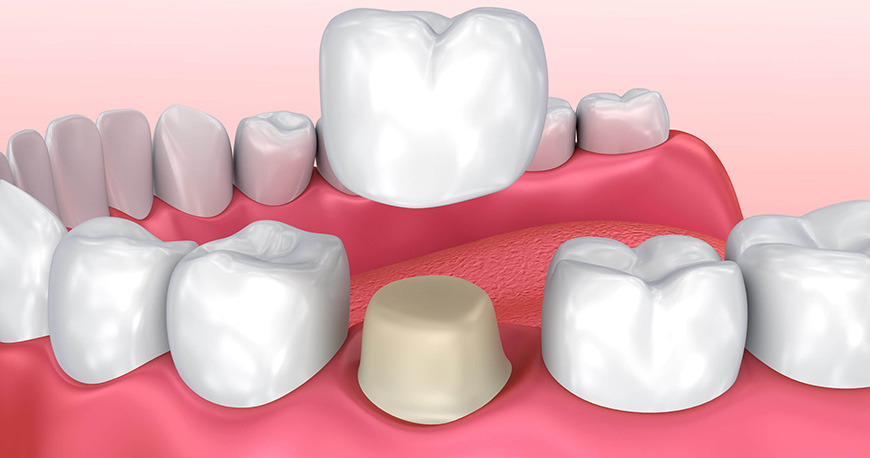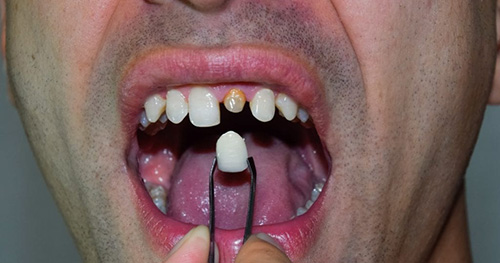
Crown restorations are one of the most frequent dental treatments in the world. Every day, thousands of individuals have crowns placed to repair a variety of tooth and mouth issues. Dental crowns are somewhat famous, but they are sometimes misunderstood. Some people are scared by the idea of getting a crown restoration.
Dental crowns are not to be feared. The dental crown procedure is straightforward and logical. More significantly, dental crowns themselves play an essential role in maintaining oral health while also improving your smiles. Here's all you need to know about crowns, as well as why you shouldn't be scared if you need one. Every service at Dental Clinic Marmaris is tailor-made for your holiday. The treatment makes it simple without sacrificing quality.
Dental crowns are used to restore teeth that have been damaged or destroyed.Dentures are used on teeth that have cracks, flaws, or deterioration. . It's reasonable to assume that the restorations are dubbed "crowns" because, while they may extend down into the root surface occasionally, crowns replace the external surface of a natural tooth's "crown" part. When applied, the crown completely envelops the diseased tooth portion above the gum line. Crowns are created individually for each tooth. They can be composed of ceramic, porcelain-and-metal, gold, or resin materials.
Dentists use crowns to achieve a variety of goals. Crowns restore fractured teeth, prevent further cracked teeth from breaking, and support teeth with large fillings. Crowns are also utilized to keep dental bridges in position several times. In each case, the height supports or replaces a damaged portion of the tooth that no longer functions on its own due to injury or disease. A crown is usually the only visible part of a tooth after it has been cemented in place. Crowns don't stand out and aren't considered strange inside the mouth. They're designed to look like natural teeth.

Crowns are made to fit on teeth the same way as sewing thimbles cover fingertips – they cover the top of a tooth and protect what lies beneath. They're cemented in place and serve as a new crown for the tooth while also keeping it intact and preventing it from shattering apart. Crowns, like the rest of your teeth, are meant to withstand the stress caused by chewing. The majority of them are made of incredibly robust and long-lasting materials. A crown is similar to a lid for the top (visible) section of your tooth. After the dentist secures the crown to your damaged tooth with cement, it becomes a part of that tooth.
After the anaesthetic has been applied, your dentist will use a dental drill and abrasive bur to remove the outer layer of the tooth on top and all sides, creating enough area for the crown to be placed. If there isn't enough tooth left to support the head, they'll first build up a crown to provide a sturdy basis for the crown. Later on the dentist has assessed the tooth, she or he will make an impression of it using dental impression paste, putty, or a digital scanner. The influence will be sent to a dental laboratory to produce the crown.
The crown is sent back from the dental laboratory to the dentist after two to six days, depending on how complicated it is. It's not safe for the tooth to remain uncovered for that long, therefore our dentist will put a temporary crown in place during your first visit. When the permanent crown returns to the dental office, you'll have a second appointment with the dentist toattach it. Installation of a permanent crown is an extra visit to the dentist after the temporary one.Your dentist will remove the temporary crown and replace it with a permanent one that is custom-made to fit your tooth and bite and the new crown will be modified to fit your tooth and bite correctly. Then Dentists use a unique cement to connect the crown to the tooth once it has cured. The crown is firmly attached to the tooth when the cement hardens.

Crowns are used to repair the form, strength, functionality, and appearance of a damaged tooth. Crowns enclose and protect the susceptible region of the tooth by physically keeping it together and preventing damage. You'll be able to chew with your tooth again without risking harm to what's beneath it after you've had one location.
The structures of the teeth, including crowns, are also crucial for repairing and maintaining your bite. When a tooth decays or fractures, it leaves a hole. If the gap disrupts your taste or other teeth move into it, it can create further difficulties. Crowns repair your mouth's structural integrity by filling that void. Last but not least, crowns improve the look of your mouth because they're practically indistinguishable from natural teeth.
-Chipped or Broken Teeth
-Worn out / Tooth Decay.
-Support an Existing Weak Tooth
-Covering discolored or misshaped teeth.
-To Cover dental implant(s).
-To Add length to an existing tooth.
-Mask tooth discoloration.
